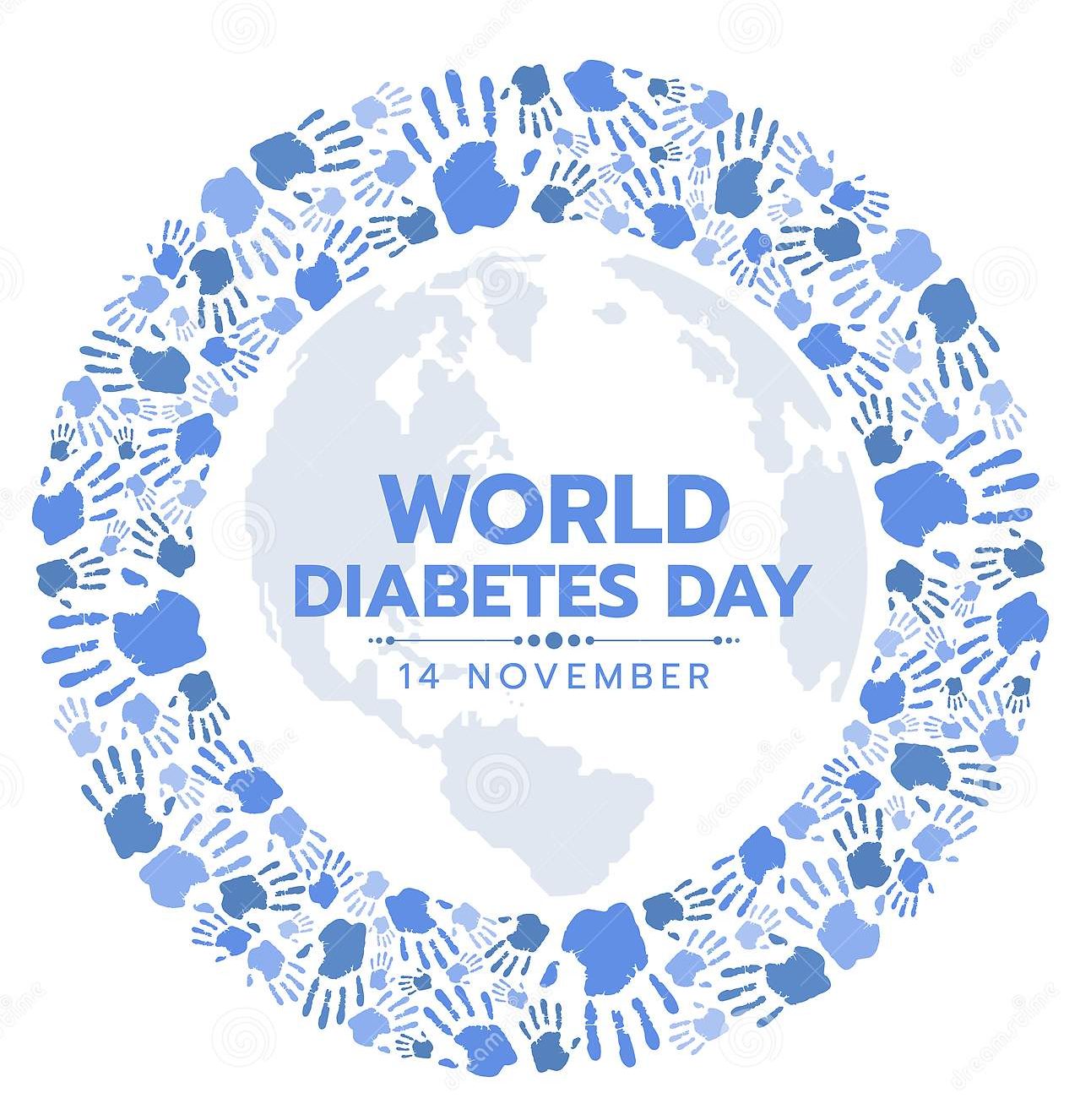
 World Diabetes Day (WDD) was created in 1991 by IDF (International Diabetes Federation) and the World Health Organization in response to growing concerns about the escalating health threat posed by diabetes. World Diabetes Day became an official United Nations Day in 2006 with the passage of United Nations Resolution 61/225.
World Diabetes Day (WDD) was created in 1991 by IDF (International Diabetes Federation) and the World Health Organization in response to growing concerns about the escalating health threat posed by diabetes. World Diabetes Day became an official United Nations Day in 2006 with the passage of United Nations Resolution 61/225.
It is marked every year on 14 November, the birthday of Sir Frederick Banting, who co-discovered insulin along with Charles Best in 1922.
WDD is the world’s largest diabetes awareness campaign reaching a global audience of over 1 billion people in more than 160 countries. The campaign draws attention to issues of paramount importance to the diabetes world and keeps diabetes firmly in the public and political spotlight. The Blue Circle is the universal symbol for diabetes. It signifies the unity of the global diabetes community in response to the rising number of people affected by diabetes.
Here are a few amazing links, in celebration!
From Katarina Braune (Germany), Bastian Hauck (Germany), Ulrike Thurm (Germany), Saskia Wolf (Germany), Milos Kozak (Czech Republic), Pete Schwamb (US) and many more, involved in the OPEN Project:
 Tonight – just in time for #WorldDiabetesDay – our earth was shaking! Here’s one of the long-awaited results from the OPEN project … Consensus on using DIY loop systems #DIYAPS has been published on The Lancet Diabetes & Endocrinology!
Tonight – just in time for #WorldDiabetesDay – our earth was shaking! Here’s one of the long-awaited results from the OPEN project … Consensus on using DIY loop systems #DIYAPS has been published on The Lancet Diabetes & Endocrinology!#WeAreNotWaiting #PayItForward #PaveItForward #DIYAID #OpenAPS #AndroidAPS #Loop #WDD2021
**************************************************************************************************************************************************************
Beyond statins: Are ceramides the new cholesterol? was reported by James Kingsland for MedicalNewsToday.com, 9 November 2021.
Ceramides are fatty molecules that health experts associate with cardiovascular disease. Research in animals suggests that drugs that reduce ceramide synthesis could prevent not only cardiovascular disease but also diabetes. Statins, which lower serum cholesterol levels to prevent heart disease and stroke, may increase the risk of or worsen existing type 2 diabetes. A review article argues that more scientists should investigate ceramides with a view to developing a new class of drug that could complement statins.
Around 38% of adults in the United States have high levels of cholesterol in their blood, which puts them at increased risk of heart disease and stroke. One of the ways to reduce serum cholesterol levels is to take cholesterol-lowering drugs called statins. However, while multiple studies have shown that the drugs prevent cardiovascular disease, some research suggests that they may worsen type 2 diabetes.
A review article in the journal Trends in Pharmacological Sciences argues for the development of drugs to reduce levels of another class of lipids. Scientists call these molecules ceramides. Like cholesterol, ceramides are a type of fatty molecule, or lipid, that play a vital role in the structure of cell membranes and in the synthesis of other lipids. The authors of the review point out that there is a strong association between high serum concentrations of ceramides and heart disease and diabetes in humans, independently of cholesterol. They also write that some clinics now measure ceramide levels to assess patients’ risk of these conditions. Moreover, laboratory experiments on rodents eating high fat diets suggest that ceramides are partly responsible for heart disease and diabetes, rather than being incidental byproducts of these conditions.
Dr. Scott Summers, PhD of the University of Utah College of Health in Salt Lake City, UT, explained that ceramides exert their harmful effects in tissues such as the liver rather than in the bloodstream. “The problem is, ceramides do most of their actions in tissues, not in the blood,” he said. “As a result, for people on statins, the ceramides likely accumulate in the liver, which is potentially problematic,” he added.
Read more: Are ceramides the new cholesterol?


Oh no, now my cardiologist will harass me about something else. I cannot wait until I see her and hear the spiel of the five new medications she will want to put me on.
She is a hoot. She seems to always find the one thing I am not doing. Now she has a whole new thing. I will let you know.